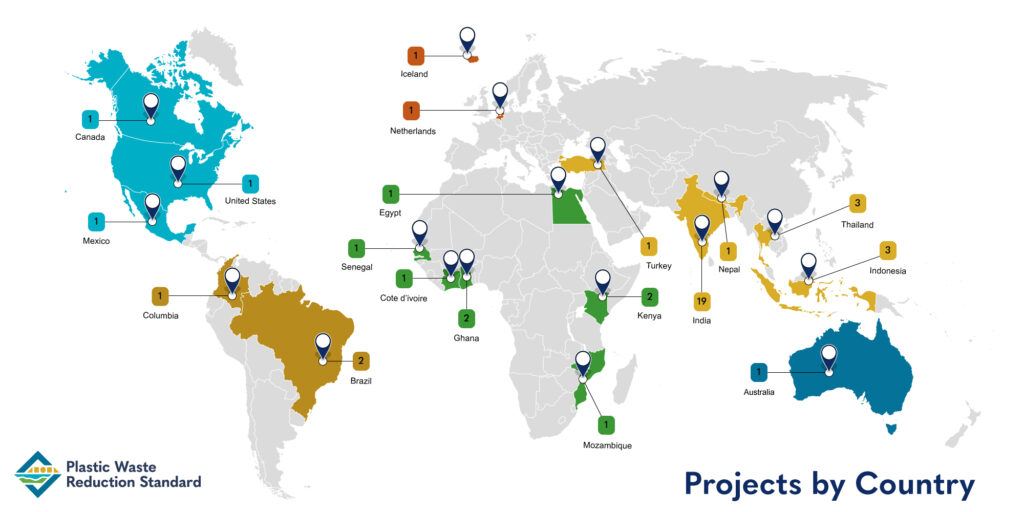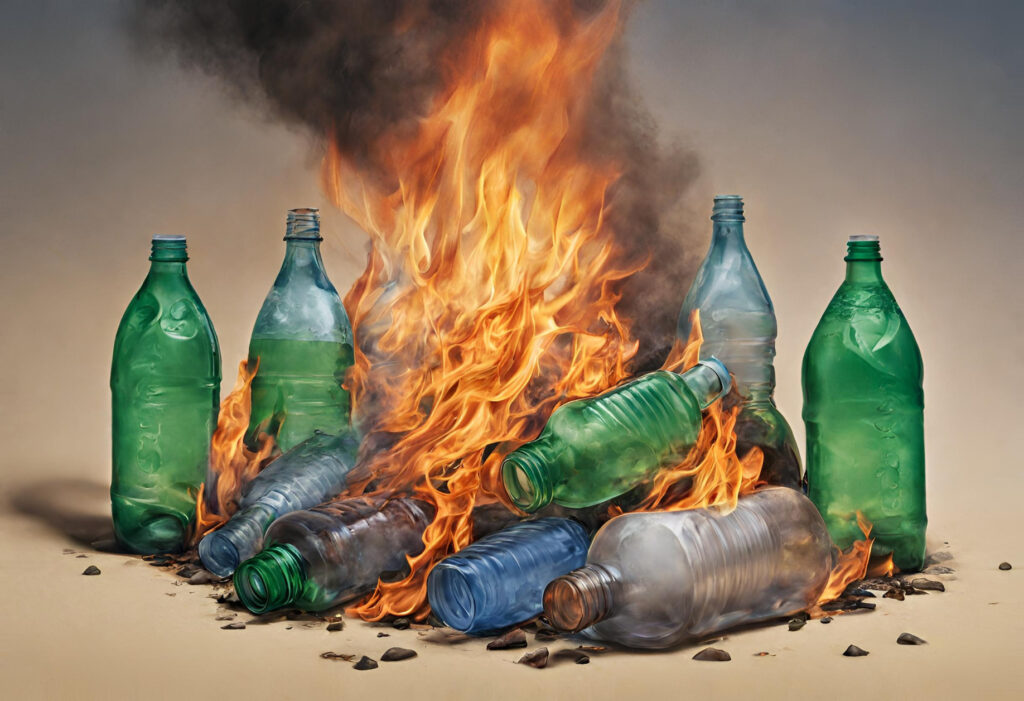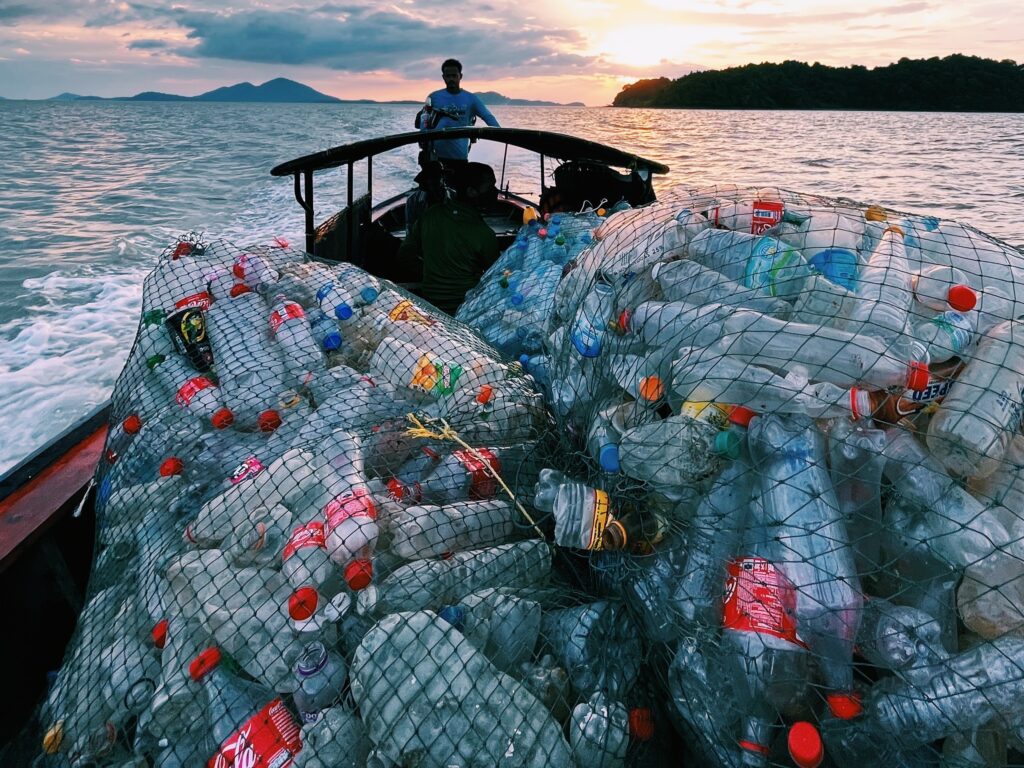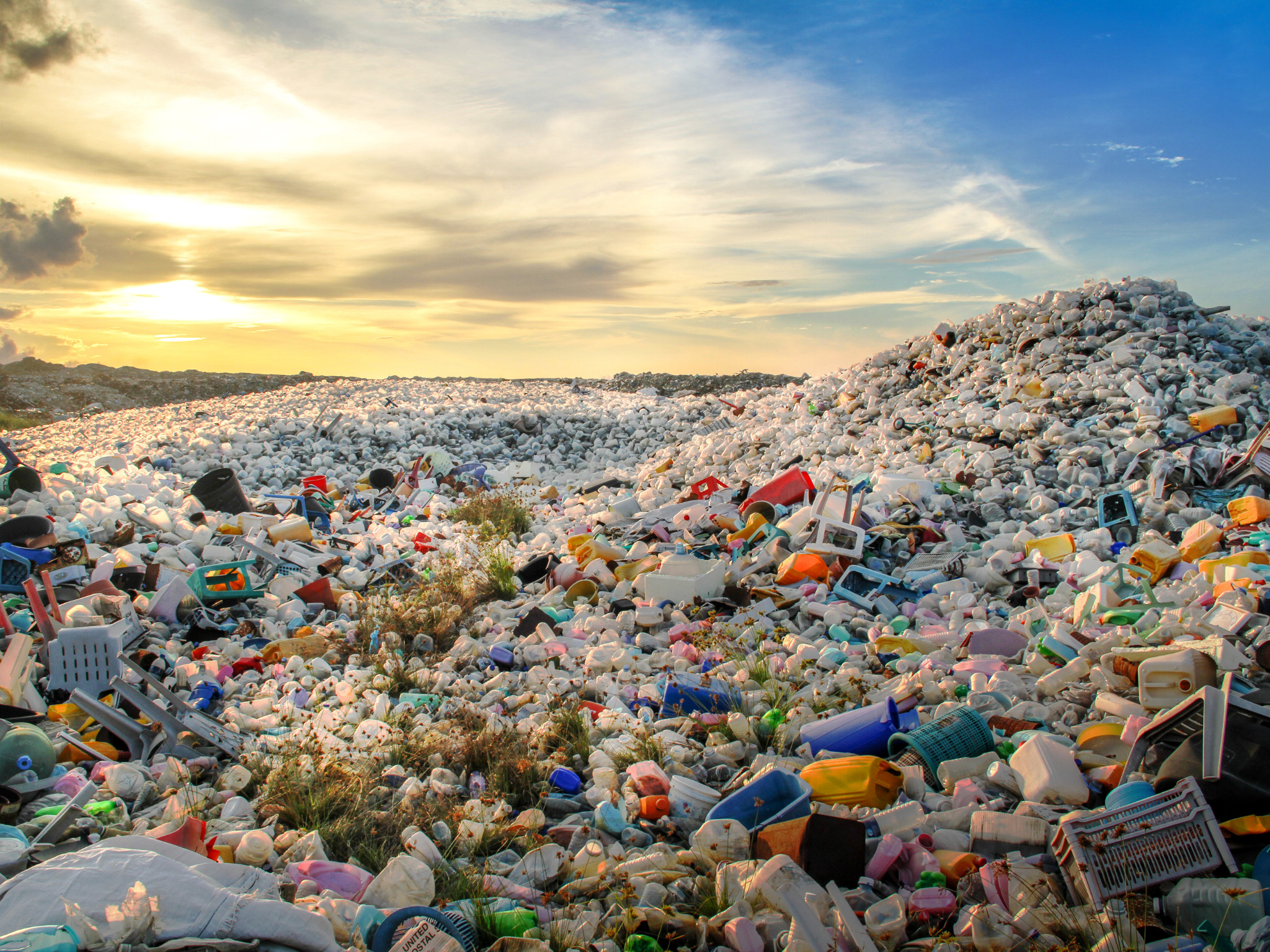Plastic Credits: Offsetting Schemes by Verra & PCX Have Serious Flaws, Says New Report
6 Mins Read
A new report by Break Free From Plastic and the Global Alliance for Incinerator Alternatives has revealed that there are serious flaws in the plastic offsetting, credits and neutrality markets, analysing the two major providers of these services, Verra and Plastic Credit Exchange.
Greenwashing is under the microscope more than ever before, with consumers calling for clearer communication and legislators clamping down hard. The EU has already finalised a ban on greenwashing, prohibiting companies from calling their products ‘carbon-neutral’, ‘eco-friendly’ or similar without substantial evidence.
One practice that’s widespread but has been found to amount to greenwashing is carbon offsetting. Carbon offsets don’t work, as many projects fail to do what they’re supposed to, and others have their impact miscalculated.
A new report – called Smoke and Mirrors – by eco organisations Break Free From Plastic and the Global Alliance for Incinerator Alternatives (GAIA) is now shedding light on plastic offsets, spotlighting two of its major proponents: Verra and Plastic Credit Exchange (PCX). The investigation, which builds upon reporting from Bloomberg and investigative journalism non-profit SourceMaterial, has found that there are serious flaws in the system, and is calling for tighter legislation and greater awareness around the topic.
Verra backdated its plastic credits

The report revealed that Verra – which manages the largest voluntary carbon programme in the world – has 41 plastic collection and recycling projects across 15 countries, and estimates that its existing projects could generate over 9.3 million credits worth $4.67B in revenue (if each is sold for $500 per tonne). However, while 11 of its projects have been registered (which requires third-party auditing) and three approved to issue credits, only one is actually doing so.
There are also serious concerns about additionally – a key offsetting concept, referring to the requirement that the credits are paying for an activity that wouldn’t otherwise have happened without the credits’ financial support. Eight of Verra’s projects (19.5%) – applying to issue over 1.1 million credits – have been in operation for seven years, before being certified to sell credits. So if these projects are approved by Verra, they will already be credited for this period.
In fact, 83% of Verra’s projects have been in operation for over a year, while 42% have been operating for over five years – all of which could be credited retroactively. This counteracts Verra’s claim that the finance from plastic credit sales can help develop waste management infrastructure “that is otherwise not viable without the revenue from the crediting mechanism”.
Additionally, over a fifth (22%) of Verra’s projects are sending plastic to cement kilns for incineration, raising concerns about potential climate implications. Experts stress that Verra’s failure to ensure additionally undermines the plastic credit market, as it approved projects that are already in operation. The report is the latest in a growing list of investigations against Verra, which have found that 94% of the carbon credits produced by 29 of its projects present no benefit to the climate, and that its Redd+ scheme isn’t fit for purpose.
“Verra is pushing to have plastic offsetting enshrined in a future plastic treaty when they only have one single project actually issuing credits,” said Emma Priestland, corporate campaign coordinator of Break Free From Plastic. “Plastic offsetting is a particularly shady form of greenwashing that lulls companies, policymakers and consumers into a false sense of security that their plastic footprint is being excused by someone, somewhere, collecting waste. But the terrible reality is it actually harming communities by sending plastic to be burned in cement kilns.”
PCX rewards burning over recycling

PCX is a plastic credit marketplace that also has a plastic footprint calculator and “provides opportunities to invest in both small and large projects aggregating and recycling through its infrastructure fund”.
Plastic credits aren’t only generated from recycling. The Smoke and Mirrors report found that only 14% of PCX’s credits are generated from recycling, despite this being the most prominent way credits are marketed. The rest (86%) comes from co-processing, which is an industry term for incinerating waste in cement kilns.
These credit schemes support plastic burning, which releases harmful toxic chemicals and greenhouse gases and presents no environmental benefits. In fact, PCX charges less for projects sending plastic waste to cement kilns than for those that recycle.
The report highlights how the PCX website claims it encourages “the elimination of unnecessary plastic while providing opportunities to enable a circular economy through prevention, reuse, substitution and recycling to avoid plastic waste from leakage into nature”.
Additionally, PCX rules mandate companies to submit their reports to third-party auditors, but this validation isn’t taking place in the majority of cases. Analysis by SourceMaterial shows that 60% of PCX’s net-zero-certified credit records had no third-party auditor.
“Plastics contain thousands of toxic chemicals that create health risks to humans and the environment. Heating and burning plastic wastes produces even more toxic chemicals and should not be considered an ethical corporate practice that provides environmental benefits,” said Therese Karlsson, science and technical advisor at the International Pollutants Elimination Network. “This situation shows the urgent need for reducing plastic production and eliminating toxic chemicals from plastics.”
‘Destined for history’s scrap heap’

The report concludes that these serious flaws in financing, additionality, transparency, basic auditing requirements and plastic removal show how this practice is just a corporate greenwashing tool.
“Having sabotaged the climate change convention with worthless carbon credit schemes, the offsetting industry is now setting its sights on the plastic treaty, where it promises to wreak similar havoc,” said Neil Tangri, science and policy director at GAIA. “Offsetting allows polluters to escape responsibility, assuring the public that the problem is solved when in reality, it is growing out of control.”
The authors write that collecting plastic waste and burning it in cement kilns “is not removing plastic from the environment, it is simply turning it into another form of pollution”. Marian Ledesma, a zero-waste campaigner at Greenpeace Southeast Asia, said: “By burning plastic in cement kilns, it damages ecosystems, harms our health and drives climate change, while letting plastic production remain unrestrained… Countries must reject plastic credits to protect people and nature.”
“Businesses that wish to act more sustainably are better served by reducing plastic use across their operations, and not by attempting to offset it,” states the report. “Governments looking for additional finance for waste treatment should develop well-thought-out Extended Producer Schemes, taxation systems on plastic producers and advocate for a dedicated fund in the future Global Plastics Treaty.”
“Financing must go into badly-needed Just Transition funds for Global South societies, not private payoffs to consultancies and paper-pushing firms,” added Tangri. “If countries fail to learn the lessons of the disastrous carbon market, the plastics treaty will similarly be destined for history’s scrap heap.”



